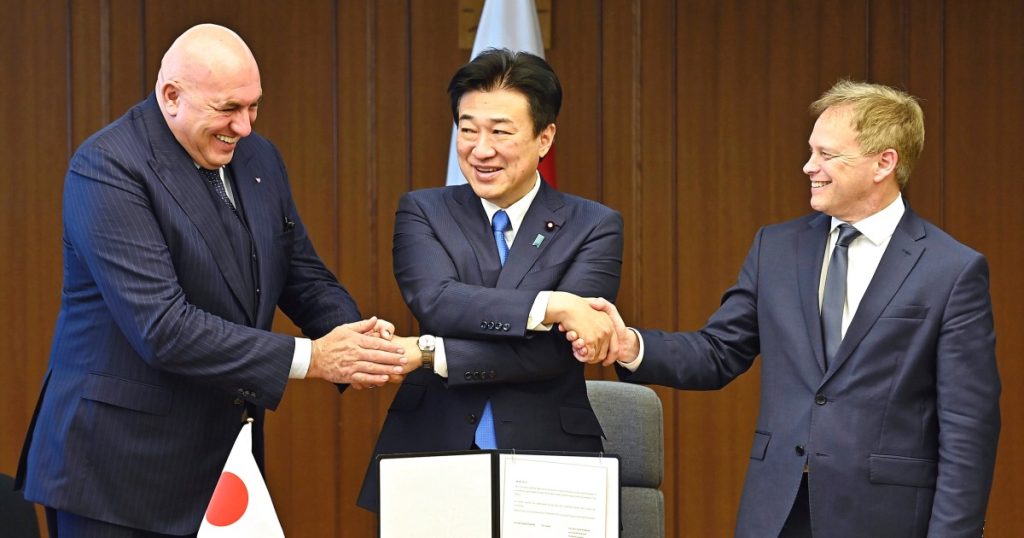Japan’s Cabinet recently approved a plan to sell future next-generation fighter jets that it is developing with Britain and Italy to other countries, marking a significant departure from the country’s postwar pacifist principles. The decision to allow international arms sales is aimed at securing Japan’s role in the joint fighter jet project and strengthening the Japanese arms industry on a global scale. The Cabinet also endorsed a revision to Japan’s arms equipment and technology transfer guidelines to allow these co-produced lethal weapons to be sold to countries beyond the project partners.
Chief Cabinet Secretary Yoshimasa Hayashi emphasized that the changes were necessary to adapt to Japan’s evolving security environment, while also highlighting that Japan’s pacifist principles remained intact. Hayashi stated that the sale of finished products from Japan to other countries was essential for the development and defense of Japan, and that a strict approval process would be followed for jet sales. Japan, which has traditionally had strict restrictions on arms exports, is now moving towards deregulation in response to rising regional and global tensions, particularly from neighboring China.
The decision to allow Japan to export lethal weapons it co-produces with other countries is a significant departure from its previous policies. Japan is collaborating with Italy and Britain to develop an advanced fighter jet that will replace its aging fleet of American-designed F-2 fighters and the Eurofighter Typhoons used by its partners. This joint project, known as the Global Combat Air Program or GCAP, is based in Britain and is aimed at deploying an advanced fighter jet by 2035 to provide Japan with technological superiority in the region.
Japan’s decision to engage in arms sales comes at a time of increased regional tensions, particularly with China and Russia, and is seen as a strategic move to bolster its defense capabilities. While Japan has a constitutional limitation on its military activities, the country is now taking steps to expand its role in global security and defense partnerships. The government has sought to address concerns about the fighter jet project by limiting exports of co-developed lethal weapons to the jet for the time being and ensuring that sales will not be made for use in active wars.
Despite public opposition and concerns about the fighter jet project, Japan’s government has pushed forward with the plan to allow arms sales to other countries. This move follows previous changes to Japan’s arms export policies, including the approval of sales of lethal weapons and components manufactured under licenses from other countries. The government has assured that the revised guidelines currently apply only to the jet project and that Cabinet approval will be required for any sales. Prime Minister Fumio Kishida has sought to emphasize Japan’s readiness to take on a greater role in military and defense industry partnerships, as reflected in his forthcoming state visit to Washington in April.


